This just now. Alongside Renay, I (Ana) have been accused of “despicable behavior” and of “bullying” on Twitter by fellow SFF bloggers @fantasybookcritic and @gavreads. Their accusation of bullying stems from the comments over on Renay’s Strange Horizons article last week on authors and fandom; and, retrospectively, my own Ponderings post on the Peter Grant series by Ben Aaronovitch. We have been accused of “ganging up” on the author when he showed up here and over at SH to discuss the interpretation of his books. Because both Renay and I argued that a reviewer’s space is their own and that it is never a good idea for authors to argue with or correct reviewers, we have been called bullies. These accusations are patently ridiculous, but because of the events on twitter today, I felt that writing a paragraph about everything that unfolded was worth it.
NOT to defend myself or Renay of any wrongdoing, as there wasn’t any – I invite everyone to read both threads, and our Twitter feeds on the matter and say otherwise – but because unlike Fantasy Book Critic and Gav Reads, we take bullying quite seriously. Criticism of a book is not bullying. Responding to an author’s comments, however forcefully or angrily, is not bullying. Bullying is serious, and we would like to adamantly refuse these ludicrous, inflammatory, and shockingly ill-reasoned claims.
Anyways, on to less stressful things.
Giveaway Winners:
The winners of our The Coldest Girl in Coldtown giveaway are:
Hardcover:
Rhiannon (comment #47)
Heather (comment #260)
Emma (comment #238)
Audiobook:
Anna (comment #18)
Congratulations! You know the drill – send us an email (contact AT thebooksmugglers DOT com) with your snail mail address and we’ll get your winnings out to you as soon as possible.
And don’t forget we still have two giveaways going on now:
Cracked by Eliza Crewe
Once We Were by Kat Zhang
Awesome Stuff:
Strange Horizons is currently running their 2013 fund drive. Go here to see WHY you should support the magazine. On topic: Renay wrote an interesting article for them (followed by a lively discussion) on fandom and author interactions, types of blogs and more: Communities: You Got Your Industry in my Fanwork
+++
J. K. Rowling and Warner Brothers announced this week that they will be releasing a new series of movies set in the world of Harry Potter. Our reaction to the news can be summarised in one gif:
YES.
+++
And probably the coolest piece of news from last week? The voyager probe left the solar system – the first manmade object to do so.
So long Voyager, may you keep going where no manmade thing has ever gone before.
This Week on The Book Smugglers:
On Monday, Sarah McCarry – All Our Pretty Songs – is this month’s SFF In Conversation‘s guest, with a fabulous, thought-provoking feminist piece on Medea
On Tuesday, Thea reviews Raven Flight by one of her favourite authors, Juliet Marillier
For this week’s Old School Wednesdays, Thea reviews Trading in Danger by Elizabeth Moon. We will also be posting the October Readalong’s Poll.
On Thursday, Ana reviews Picture Me Gone by Meg Rosoff, a highly anticipated read of 2013
Finally on Friday we review Delia’s Shadow by Jaime Lee Moyer. Then over at Kirkus, Ana reviews The Incrementalists by Steven Brust and Skyler White
And that’s it for today. It’s bye for now and as usual we remain…
~ Your Friendly Neighborhood Book Smugglers


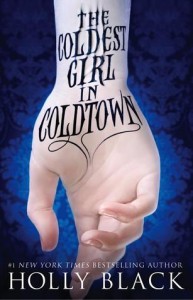



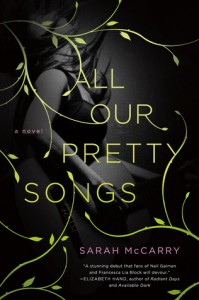

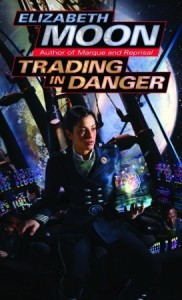
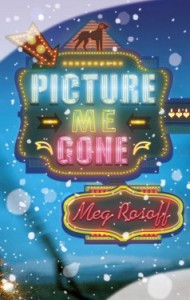
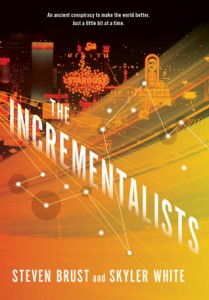
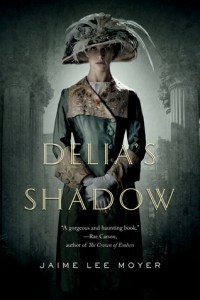
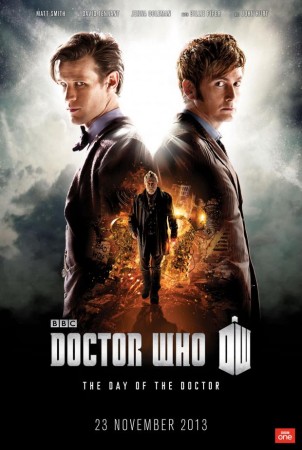








53 Comments
Lindsay Elizabeth
September 15, 2013 at 1:39 pmWelp, read all the threads. Don’t really see how either of you are bullies.
I also don’t really understand how some authors doesn’t get these distinctions. I kept seeing mentions of how “OTHER authors comment!” when those other authors were not commenting on their own reviews. Commenting as a fan (even if you are an author) on a review for someone else: OKAY. Commenting as an author on reviews for your own work: NOT OKAY. Seems pretty simple to me.
Ben Aaronovitch
September 15, 2013 at 2:16 pmWhy is it wrong for authors to comment on their own work?
Jane
September 15, 2013 at 2:38 pm@Ben Aaronovitch – It’s hard for me to tell if you are being genuine because this is the internet but there are a lot of reasons that author commenting can be problematic. The first and foremost reason is that it can shut down discussion. Readers are often intimidated when an author comes into a reader space. They are willing to discuss the book’s shortcomings and exalted heights but only if they don’t feel the author is breathing down their neck. The presence of the author into the space can automatically, no matter what the author says, suppress active discussion.
Second, the author’s comments often act as a definitive statement on the discussion when, in fact, how the reader interacts with the text is often as important to other readers as how the author attempts to articulate the points in a book.
Third, the author is in an automatic position of authority having a) written the book and b) having a platform as a result of this.
There are other reasons, of course, but if your purpose is to shut down discourse, particularly discourse you don’t agree with, then objective accomplished.
If you want to encourage robust discussion then interjecting yourself into a discussion when all the foregoing happen automatically, then you really need to be cognizant of how you are expressing yourself and apply yourself to the actual topic at hand.
Unfortunately, having read the previous thread, your tweets, and this comment, I don’t feel like you are interested in actual honest debate and discourse but instead are merely looking for affirmation for a position that is being hotly contested.
If you can’t see that, then you aren’t as enlightened as your writing has suggested and you urge us all to perceive you as.
draconismoi
September 15, 2013 at 3:01 pmAs the BLI reviewer best known for passionate reviews (on both ends of the spectrum. I love or hate. Nothing in between.), I find it hilarious who authors target as bullies. Not me or Requires Hate or You’re Killing Us. Oh no, they go after people who say “damn, I love the series, but there is only so much of X thing I can take. May have to step back for awhile.”
I’m an attorney who works exclusively with victims (of DV/IPV, abuse, neglect, hate crimes, etc). I see bullying every day in real life. I see it online. I see what it does to victims.
I’ve yet to see an incident of bullying that increases an author’s exposure and entices people to buy their books. (Ana, how CAN you sleep at night with that kind of burden on your soul? 😉 ).
Since Benny seems to have a lot of difficulty determining appropriate author/fan interaction, and clearly cannot handle the fellow authors at SH or fans here at Book Smugglers directly advising him on his behavior, I’ll direct him to some good examples.
Good Author Interaction On a Blog About Own Work. (Note how when the author found an incorrect interpretation of a character in her series, she simply laughed at us and moved on?)
Not long after the aforementioned fan-poodling post went up, Ilona Andrew’s next book was released and many people were ANGRY about THINGS that HAPPENED. Rather than go to each reviewer or tweeter to lecture them about why there were wrong, Ilona posted this on her OWN blog. Which covered all the the complaints and most reviewers ultimately linked to.
Ben should find questions # 2 and 6 very informative.
Andeu
September 15, 2013 at 3:12 pmThis is mostly to BA.
Commenting on your own work is fine. There just are right and wrong times to do it.
If you are writing about your feelings and reactions to a book, it is rather terrifying to have THE author commenting on it, saying that you are misunderstanding the whole point of this or that aspect of their work. Aren’t musings more about the reader than the book? Reading is not really about seeing things exactly from the authors point of view, it’s more about putting yourself in a situation created by the author, then reacting to it. Reflecting on those reactions is usually one of the most enjoyable parts of reading. Recognizing what made you react, and why it made you react is a good way of keeping tabs on your own personal growth. Sharing those epiphanies is a way of giving others the possibility to reflect on their reactions and create discussion.
It’s just, well, having the author jump on that discussion telling everyone that they are wrong is not okay. Knowing that the author is watching and judging your personal feelings and thoughts if you dare to voice them feels like some kind of violation. That is a sure way to alienate your readers.
If you want to comment on your work, do it on your own space, without pointing at those you’ve deemed unable to really understand what your work is saying.
Sorry for my choppy english. Peace and love.
Ben Aaronovitch
September 15, 2013 at 3:40 pmThe majority of writers read their reviews – reviewers must know this and yet the fact that the writers are reading their reviews doesn’t seem to inhibit them.
You don’t seem intimidated by me, nor does Anna and I’ve never failed to encounter a robust defence of opinion on any of the websites I’ve visited. Are you personally intimidated when I join a discussion or are you talking about other people?
There is no reason why an author’s comments, beyond irrefutable statements of fact, should act as the definititive intepretation. Yes, a reader’s interaction with the text *is* just as interesting to me as it is to other readers. I’m not here to impose my will I’m here because I like to take part in discussions about writing. I feel can provide an insight into the creative process that might start a debate, cause outrage or start people thinking in just the same way a reader’s insights might do to me.
An author has no authority that you don’t give her. They have no practical sanctions and as I understand it current literary theory dismisses anything they say about their work as irrelevent.
In short I disagree with your argument that, as a general principle, an author should never comment on their own work. Since this is my position then it follows, in my opinion – obviously not in yours, that if you don’t want authors, or just certain authors, to post about their work then you should say so explicitly.
As to the last part two paragraphs I didn’t write my books looking for cookies and while your good opiniojn would be nice it’s not essential.
If you wish me to go away and never darken your blogstep again all you need to do is say – Ben Aaronovitch go away and never comment here again – or variations on that theme.
Ben Aaronovitch
September 15, 2013 at 3:52 pmdraconismoi
– I’ve never accused anyone of bullying, I’ve never even raised it as an issue.
Janet Flora Corso
September 15, 2013 at 4:01 pmI came into this discussion because I am tired of seeing people use the term “bullying” every time they get their feels hurt, especially on reviews. I agree Bullying is a serious issue and needs to be treated as such. I wrote a comment at SH already, after reading EVERYTHING for the better part of the day. All I was going to say here was, you are not a bully, you had valid points in your review, and I am sorry I haven’t been here in so long (site looks great!)…
Then, I saw Mr. Aaronovitch’s question and I screamed out loud, “OMIGOD! HE CAME HERE TOO?!”
I mean, are you for real, man? You said, “This is obviously the consensus and I’m not going to challange it any further. (sic)”
Yet, here you are. You have already asked and had that question answered, in various ways. No one is telling you to stop writing books. The review may have actually helped you originally, but now, your reaction and this behavior is only going to hurt.
Please, stop before it gets completely out of control.
Ben Aaronovitch
September 15, 2013 at 4:03 pmJanet Flora Corso –
I’ve never accused anyone of bullying, I’ve never even raised it as an issue.
Amanda
September 15, 2013 at 4:12 pmEven if most authors do read their reviews (which is anectdata at its finest, and the truth of which I seriously doubt), it seems that a large number have the good sense to keep their opinions to themselves. These reviewers that we’re talking about aren’t professionals, they’re mostly just readers who should be able to converse about whatever aspect of the book they want without fear that the author is going to barge in making corrections or arguing interpretations, which is in and of itself an implicit tossing about of presumed authority.
And while Ben might not have ever accused Ana and others of bullying, he certainly sat back and watched and didn’t comment on the ridiculous nature of the accusation, seemingly happy to benefit from the publicity the flame war created. Which is majorly tacky and unprofessional.
KT Grant
September 15, 2013 at 4:14 pmBen, then what about singers, actors and other artists in the entertainment field? If a critic for Entertainment Weekly, People or some other mainstream publication, or even a volunteer entertainment blog like Oh No You Didn’t has a review that’s less than positive for a movie, TV show, Broadway show or whatnot, that artist has a right to question that critic or start a discussion with that critic? That rarely happens in that industry, but for some reason in the publishing industry, especially on Amazon, Goodreads and book blogs, authors engage with readers/reviewers in ways that are defensive and confrontational over reviews. It’s becoming an unfortunate epidemic, now with arguments over even positive reviews, if say that reviewer has any form of negative opinion or criticism in their review.
You’re probably correct in saying that writers read their reviews, but that shouldn’t be the concern of a reader/reviewer when writing their review. If so, then readers/reviewers will be wary of posting any opinion, honest or otherwise with fear of backlash from that author and their supporters. It has this whole Big Brother is watching their every move scenario.
I do feel the word “bully” is being used wrongly when it comes to reviews. And honestly from what I’ve witnessed, the vitriol starts when an author comments on a review and that reviewer gets defensive and insults the author in order to back up their claims. Then the author responds back, usually in an insulting way, and it blows up.
The one question to ask is why would an author want to jump into a reader discussion about their book on a blog unless they were invited? What’s their main reason in doing so?
Ben Aaronovitch
September 15, 2013 at 4:24 pmAmanda –
They all read them and the ones that say they don’t are probably lying.
So basically a restatement of; we feel inhibited by authors.
Plus
Two strawmen for the price of one.
I am not responsible for the tweets and comments of other people and the idea that this discussion is generating usuable publicity is laughable.
.
Janet Flora Corso
September 15, 2013 at 4:26 pmBen- I know. Nobody said you did. But your defenders did on Twitter and that’s what drew me into the convo. You may want to ask them to cease and desist. This post addresses that topic which, as I said, was all I was going to comment on, because bullying is personally an important issue. But, again, as an outside party, many people are giving you good advice to not engage. Use your forum to respond if you want, but these comment debates won’t end well.
Amanda
September 15, 2013 at 4:26 pmGet off it. I didn’t say you were responsible for the tweets or comments of anyone. I’m saying that as a reader and therefore potential customer, I found the fact that you didn’t do anything to stop the situation to be tacky.
Ben Aaronovitch
September 15, 2013 at 4:29 pmKT Grant — The one question to ask is why would an author want to jump into a reader discussion about their book on a blog unless they were invited? What’s their main reason in doing so?
Why? Because we like to talk about writing and reading and books. I don’t care whether actors, or TV producers or whatever do or don’t do. I’m a writer and I love to talk about writing and I care passionately about my work. So when people talk about my work I want to join in the conversation because there’s so much to discuss and things to learn.
Ben Aaronovitch
September 15, 2013 at 4:31 pmJanet Flora Corso
I refuse to take responsibility for people I don’t know beyond occassionally seeing their tweets on twitter. I wouldn’t ask you to take responsibility if the situation was reversed.
Ben Aaronovitch
September 15, 2013 at 4:35 pmAmanda —
It may come as a surprise to you that I don’t think of everyone I interact with on the internet as a potential customer. I’m sure my publisher sees this as a failing.
If you think it’s tacky that I didn’t stop them then it implies that it was my responsibility to do so.
Ben Aaronovitch
September 15, 2013 at 4:38 pmIn fact that may be the problem. You see yourselves as potential customers but I see you as readers and bloggers full of interesting ideas and discussions.
Perhaps if you stopped trying to create a devide between readers and writers you might find our presence a little bit less intimidating? http://thebooksmugglers.com/wp-includes/images/smilies/icon_biggrin.gif
Ben Aaronovitch
September 15, 2013 at 4:46 pmOh I know I see how you do it…
Ben Aaronovitch
September 15, 2013 at 4:46 pmOr not….
Shiloh Walker
September 15, 2013 at 5:01 pmO.o
Bullying from M-W.com:
a blustering browbeating person; especially : one habitually cruel to others who are weaker
to frighten, hurt, or threaten (a smaller or weaker person) : to act like a bully toward (someone)
: to cause (someone) to do something by making threats or insults or by using force
from dictionary.com
6. to act the bully toward; intimidate; domineer.
verb (used without object)
7.
to be loudly arrogant and overbearing.
Generally, we think of bullying with excessive threats, harassment, sometimes bringing physical harm into the equation.
Having somebody not like a frigging book isn’t bullying.
A person not liking a book is generally called having an opinion.
Personally, I don’t got hunting down my reviews that often. Life is actually less stressful that way. Plus, it kinda gets in the way of writing other books and it’s counter productive.
If a person didn’t like it, they didn’t like it. That’s okay. They aren’t writing that review for me anyway. That review is to help other readers decide if that book is going to work for them-and if it’s NOT? I’d rather that reader know up front.
Arguing or explaining something isn’t going to change their mind. That book, or some part of it didn’t work for them. And that’s fine. I’ve read plenty of books I didn’t like and I really don’t want to have that author tell me I don’t have a right to dislike it or tell me that I misunderstood. Telling me that I can’t understand words on a page just makes that person look like an obnoxious ass, IMO.
This crap about negative reviews being the same as bullying is coming from people who likely haven’t ever been bullied. Being bullied is hiding in school rooms, being late to school, so you don’t run into your bullies. It’s been chased home because the bully caught up with you.
It’s going to work every day and having to deal with laughter or isolation because a bully there spread rumors about you. Having your bully threaten you, but when you try to report it, nobody listens.
Bullying comes from somebody in a position of power and it demeans, humiliates, isolates, leaves you feeling worthless.
Reviews are opinions of a work and too often, those who cry BULLY are actually the ones doing the real bullying, attempting to silence everybody with a dissenting opinion, mocking them, trying to cut them down, etc. It’s utter crap.
Emily
September 15, 2013 at 5:18 pmFirst and foremost:
There is no bullying I see.
Secondly:
I honestly think it’s FINE for an author to comment on a reader’s space, but an author must be careful. First of all, you can’t force a “right” interpretation. This all unfolded because of one simple comment, and it all exploded.
Bullying, people, is abusing someone.
Not criticizing.
It is not even saying they are a horrible author on their review of their book.
This is less than graceful, and you should never do this because a) it is bad and b) you will get lots of hate.
But it is not bullying. It is horrible. Not bullying.
Now I know no one’s going to listen to my rant–and honestly, I’m pretty much fine with that–but ANA AND RENAY HAVE NOTHING AT FAULT. SO JUST LEAVE. THEM. ALONE.
Rant over.
Emily
September 15, 2013 at 5:19 pmActually, saying they a horrible author might not get you a lot of hate. But it’s not very nice, honestly. We’re reviewing books, not authors. You can say the BOOK was not well written, but you really shouldn’t say the AUTHOR IS A HORRIBLE WRITER.
That’s just mean. How would you like it if someone said that to you?
A_nna
September 15, 2013 at 5:20 pmI bring up this point not as an argument or anything, I’m just interested. Back in The Book Smugglers review of ‘Tender Morsels’ Margo Lanagan commented on the review saying: I don’t mean to make you all self-conscious, but I’ve been following these comments with great interest, and I respond to catie james and Thea’s remarks on the novel’s ending over here: http://amongamidwhile.blogspot.com/2009/08/unhappy-ever-after.html I found the discussion that stemmed from this really fascinating. Is the reason people responded so differently in this case because Margo posted her full opinion in her own blog space, or is there no difference?
Anonymous
September 15, 2013 at 5:21 pmShiloh Walker
I completely agree about bad reviews not being a form of bullying.
Ben Aaronovitch
September 15, 2013 at 5:24 pmShiloh Walker
I completely agree about bad reviews not being a form of bullying.
(That was me sorry. My eyesites getting really bad).
Ben Aaronovitch
September 15, 2013 at 5:26 pmEmily
Your absolutely right – giving someone a bad review is not bullying.
Gabi
September 15, 2013 at 6:06 pmOnce a book is published and put out into the world, it is as much the reader’s as it is the writer’s. The reader’s interpretation is as valid – maybe even more valid – than the author. A book should speak for itself. the author shouldn’t need to explain it or defend it.
Andrea K
September 15, 2013 at 7:37 pmHere in Australia we have a televised book club show on our national channel. I’m picturing the club members sitting around talking about how much they like or dislike a particular book when the author walks in, pulls up a chair, and starts addressing their comments. Even if the comments were positive, I can just picture the expression of Awkward everyone would suddenly be wearing.
I’m also picturing the author walking into someone’s house, at the meeting of their personal book club.
Sites like The Book Smugglers sit somewhere between personal and professional – Ana and Thea aren’t being paid to maintain this site (frankly, I don’t know how they manage it, given they’re juggling day jobs as well), but the industry has benefited by including book bloggers into promotional releases. But it is most definitely still their space.
While I don’t believe that authors should never comment on reviews of their work, it’s always something worth thinking twice about, and to exercise as much moderation as possible. [If you’re the author of a reviewed book and every second comment in the comment thread is yours, addressing every other comment, then it’s definitely time to reconsider your response level.]
I’ve been reviewed three times on The Book Smugglers. I commented on only one of those reviews, and that only to clarify a question of gender terms raised in the comments. I once commented on a review on Goodreads which directly addressed me to suggest I write a book (to, uh, curse them for giving me ideas for books – and then to write the book they suggested).
I don’t recollect commenting on reviews of my books otherwise. I don’t comment on the reviews of my books by people I went to school with, who I know are making a particular effort to raise my profile. Heck, I don’t comment on reviews of my books by _authors I have read and collect_ even though my first response is a wholehearted desire to fill their comment thread with YOUREADMEYOUREADMEILOVEYOUILOVEYOURBOOKSYAYAYAYAYAYAYAY!!!
This is because – even when it is a positive review or a review by people I know personally – me showing up on that review changes the way other commenters are likely to express themselves. I know that if I write a review, or am commenting on a review, and the author shows up, it impacts my enjoyment. I’m aware that the author might read my review, but that’s very different to engaging in a discussion. If the review is anything but squealingly positive, I would immediately feel defensive.
Sure I will happily join in a discussion of my books – if invited. I love talking about them. But I don’t assume that I’m invited to the discussion – just as I wouldn’t assume I’m invited into that tv studio – or that person’s home – just because they’re discussing my work.
As for the people who keep talking bullying in relation to book reviews: “I do not think that word means what you think it means.”
Nick
September 15, 2013 at 7:41 pmA_nna –
“Is the reason people responded so differently in this case because Margo posted her full opinion in her own blog space, or is there no difference?”
The reason people responded so differently is this:
Lanagan starts her comment by straight away acknowledging the fact that her presence may not be desired and may have an unwanted effect on the discussion – “I don’t mean to make you all self-conscious”. She shows she understands the power an author has, and that she doesn’t want to abuse it.
Further, by linking to the response on her own blog, she’s allowing the people she’s responding to the choice of if they want to read it or not. So yes, to answer your question, that fact does make a big difference. If people want to read what she has to say, they can go to her blog to read it, and respond there if they wish. Equally, if they want to carry on the discussion on the original post without reading or being affected by the author’s input, they can do that too.
Put another way, it’s a way of saying “Here are some of my thoughts if you’re interested in them, but if you’re not that’s cool too”, whereas an author commenting directly on a blog is saying “Here are my thoughts whether you want them or not”.
Annamal
September 15, 2013 at 7:53 pmI think authors interacting with reader reviews is a grey area and probably needs to be approached very carefully.
In the case of Amazon or Goodreads reviews I think authors should avoid engaging with specific reviews at all costs since they are generally by members of the public and any interaction with the author (even on a positive review) could have a nasty chilling effect.
On the other hand professional review sites such as Dear Author are a good place for an author to engage with a reviewer on near equal footing. I’ve always been impressed by the gracious way some authors handle negative reviews (the dear author reviewers seem to be very good at explaining exactly which aspects didn’t work for them). Obviously this interaction should not extend to tantrum throwing or explaining why a reviewer is wrong wrong wrong.
I would have classed Book Smugglers as a professional review site and therefore fair game for (measured) interaction with an author, perhaps you should make your dislike of author interactions with reviews explicit?
Matt
September 15, 2013 at 11:47 pmI wonder if those folks are getting confused about the bullying issue because of the community nature of blogs? You know, a blog is popular and so it has a lot of followers who may see things in a similar light and get angry if the writers are angry. That is NOT bullying if the writers aren’t sending folks off to pester their target or spread cruelties or whatever, but it might look like when the popular kid in school uses their popularity to single someone out.
The thing is, the real world and the virtual world aren’t perfect analogues. A blog conversation is more akin to, oh, something like having a get together at a coffee shop. People can listen in or maybe join in, but there’s no outward momentum of the conversation. Now, what people do after reading your posts, I don’t know. If they share and spread negative sentiments then, it kind of looks more like a bullying campaign, but if you come back here you can see that there was never any intention nor were there instructions to engage in bullying tactics.
Anonymous
September 16, 2013 at 1:56 amHere is the central issue as I see it…
You believe that authors should (almost) never post in response to a discussion about their work because the fundermental power dynamic between writers and non-professoonal bloggers is so severely weighted in favour of the writer that the non-professional blogger is effectively prevented from expressing themselves.
I do not agree with this statement.
Would you say that was a fair summery?
Ben Aaronovitch
September 16, 2013 at 1:57 amHere is the central issue as I see it…
You believe that authors should (almost) never post in response to a discussion about their work because the fundermental power dynamic between writers and non-professoonal bloggers is so severely weighted in favour of the writer that the non-professional blogger is effectively prevented from expressing themselves.
I do not agree with this statement.
Would you say that was a fair summery?
Andrea K
September 16, 2013 at 3:13 amNot sure which of us you’re addressing. I personally believe that it’s rarely a good idea because (1) it tends to make people feel uncomfortable and I have no reason to do that and (2) it often ends up making the author look bad, and I have no reason to want to look bad.
The gain of me getting to air my views about my books is less than the sum of people feeling uncomfortable about me and gaining a negative impression of me.
You’ll note that upthread it was mentioned that Margo Lanagan did respond to the discussion on one of her reviews, but she did it in a way which brought those who wanted to discuss it with her to her space (her blog).
[Weird timing – I bought the third book in your series only two days ago, having enjoyed much of the previous two. I have to wince to look at the number of times you’ve posted in this thread, which seems less about discussion and more about getting the last word in.]
Ben Aaronovitch
September 16, 2013 at 4:02 amAndrea K –
Renay and Ana’s argument was that writers should not blog on fan sites because they are part of the industry and thus ‘punch down’ which is why people feel uncomfortable. Which is your point 1.
Your point 2 is irrelevent so is how Margo Lanagan does or does not respond to her reviews.
What annoys me is that Ana and Renay are trying to generalise their personal preference, that writers should not post on Book Smugglers, into a universal rule which I feel is a dishonest position.
If either of them tells me directly that they don’t want to discuss any further and that they want me to leave then I shall do so – without a parting shot.
growlycub
September 16, 2013 at 4:15 amBen. Are you for real?
Jonathan M
September 16, 2013 at 4:23 amAll Renay did was to express the fact that authors wading into critical discussions of their work made her feel uncomfortable. When I tried to get this very simple idea across yo you in the comments at Strange Horizon, you called me an idiot and set about ‘correcting’ a review of your work because you reserve the right to wade in anywhere you please.
Andrea pointed to Margo Lanagan as an example of how to enter critical discussions without intimidating people and you deem this completely irrelevant.
All that anyone asked was for you to respect the people discussing your work and not act in a way that might skew the discussion. You have responded to this very small request with boundless hostility and bad faith.
I really do find that incredibly sad…
Ana
September 16, 2013 at 4:28 amOk right. Time to step in.
Ben Aaronovitch – You are putting words on our mouth that were NEVER EVER once said.
Nobody is trying to generalize anything. I can’t speak for Renay but here, we are talking about our own blog, our own perspectives. NOBODY here is trying to enforce any universal rules.
No, actually that is not the argument at all: the argument is that should authors choose to interact with fans IN THEIR OWN SPACE they should be wary of the way they do so, the tone of the argument, and especially if they are not explicitly invited to the discussion
Now, I do wonder if you are legitimately wanting to have a discussion. So far, several people replied with THEIR OPINION only to find those being questioned over and over again. You asked POINT BLANK about the central issue to wit Andrea K replied with a perfect example.
Your first question here is to ask “Why is it wrong for authors to comment on their own work?”. This threads back to when we first started (http://thebooksmugglers.com/2013/07/smugglers-ponderings-on-the-peter-grant-series-by-ben-aarnovitch.html). I replied to your comments then with the following:
This still stands. It is not “wrong” for authors to comment on their work, nobody is talking right or wrong here. This is a very simplistic, dismissive way of looking at this discussion.
If I tell you that we don’t want to discuss any further – which is not what we want at all – we will probably come across as inflexible even though you are the one leaving comment after comment that do not actually engage with the ideas put forth. I’d say: we do want to talk. But not if the comments will keep repeating the same broken record.
Ben Aaronovitch
September 16, 2013 at 4:54 amThat’s true during the original SH thing I read this…
— I just wanted to say (and this my opinion alone and I am not speaking for Thea as well): I do appreciate when authors comment on the blog. Heck, Andrea K above is an author. I have friendly relationships with authors, we host authors here on guest posts and talk to them on twitter. —
And thought good point and walked away.
And that is where it would have stayed had not Ana used me, by name, in a blog that I frequent on a regular basis, in her article.
— To me as a fan, this looked like a case of an author walking into an explicitly fannish discussion to throw around his canonical weight. From my perspective, the blogger (Ana Grilo) reacted much better than I know some fans (including myself) would have if an author had made that choice. The fact that Grant preceded his comment with “Authors commenting on reviews is usually a mistake but . . .” suggests to me he knew that the playing field was not level, yet he spoke, anyway. The nature of the shift from fan blogs to industry blogs is making creators bolder, and perhaps, allowing them to think less complexly about their positions.
—
Note: ….suggest to me that he knew the playing fields were not level.
And then — —sometimes fan criticism is not meant for creators to engage with at all, and they shouldn’t comment even if they read it, no matter how much the environment of the discussion looks open to interaction.
—-
Then Renay’s response to my comment…
–Were you invited explicitly to the discussion? No? Then don’t comment. —
That looks pretty cut and dried to me.
During this discussion I’ve seen the following —
Jane-
— The presence of the author into the space can automatically, no matter what the author says, suppress active discussion.–
Lindsey Elizabeth –
— Commenting as an author on reviews for your own work: NOT OKAY. Seems pretty simple to me.–
Andeu –
— Knowing that the author is watching and judging your personal feelings and thoughts if you dare to voice them feels like some kind of violation —
But I agree neither of these comments came from Ana or Renay.
Rose Fox
September 16, 2013 at 4:57 amAs an example of an author showing up and stifling discussion, I refer you all to this 2009 conversation about Daniel Abraham’s “The Best Monkey”. That post has 88 comments on it. As I recall from participating in that discussion, it was going on at a fine clip when Daniel showed up and left a comment. I replied to him, he replied to me, one other person replied to him, and… no one else ever commented on the post again. Conversation over.
The opening of my reply was:
I’m intrigued that you decided to join the conversation; it’s good to have your perspective, but I hope it won’t shift things from interrogating the text to interrogating the author.
I think this is a lot of what Renay and Ana are getting at. Once the author shows up and offers authoritative opinions–the linguistic connection between “author” and “authority” is not coincidental, by the way–it’s extremely hard to go on just talking about the interaction between reader and work. If the conversation does continue, it may well turn into an impromptu “ask me anything” session where the readers ask the author to provide information about the author’s perspective on the work. That’s not a bad thing, if it’s what the readers want, but it’s also not at all the same as readers talking with readers about the reader’s perspective on the work. And if readers want to have a conversation about the reader’s perspective, it’s really intrusive to have the author drop the author’s perspective into the middle of that conversation. It’s like the landlord busting into a tenants’ meeting and starting to explain that he didn’t patch the leak in the roof because he’s short on funds; his claim may be entirely legit but it’s also entirely out of place in that particular setting.
In the discussion of Daniel’s story, I added, “I, at least, will attempt to treat your comments as though they came from another reader, though this might not be successful.” It wasn’t. The author can’t be treated as just another reader. They know too much about what the story looks like from the inside, and not enough about what it looks like from the outside. Even in a conversation among a hundred readers with a hundred different perspectives, the author’s perspective will stand out and be unique, because the author is in a unique position with respect to the work.
That’s why the author has authority: only the author knows what it was like to create the work. And readers are often taught–quite literally taught, in schools–to respect or even venerate the author’s perspective and intent. Quote “The Intentional Fallacy” all you want, but there is something really appealing about getting to know the author’s side of things. The flip side of that is that once you’ve heard the author’s side of things, there’s no more discussion to be had. Once you admit the author’s perspective as relevant, the perceived value of the reader’s perspective drops to nil.
I assume that authors who jump into these conversations expect something like this:
1) Reader is wrong
2) Author explains
3) Interesting discussion follows
4) Everyone comes to understand everyone else’s perspective, handshakes all around
What actually happens is usually either this:
1) Reader has an opinion
2) Author has a different opinion
3) Reader feels intimidated because the author’s opinion is clearly definitive and so what’s the point of the reader having or stating a different one
4) Conversation is stifled
Or this:
1) Reader has an opinion
2) Author has a different opinion
3) Reader interrogates author and learns more about the author’s opinion, which is seen as definitive
4) Conversation is stifled
Or, worst of all, this:
1) Reader has an opinion
2) Author loudly corrects that opinion
3) Reader decides author is a jackass and no longer wants to interact with them or read their books
4) Conversation is stifled and the author loses fans
In extremely rare cases, you get this:
1) Reader has an opinion
2) Author has a different opinion
3) Reader overrules the author on the grounds that authorial intent is irrelevant to interpretation of the work, but this is so difficult and exhausting for the reader–because challenging authority is hard–that they no longer have energy to continue with the discussion
4) Conversation is stifled
Authors, no one is saying that you aren’t allowed to comment on reader discussions. What people are saying is that it’s counterproductive and intrusive to do so, and that it would be considerate of you to leave reader spaces to the readers. When multiple people are telling you that they think your behavior is rude, maybe it’s worth listening rather than insisting on your right to be rude if you damn well want to be. Yes, of course you can be rude to your readers. People are rude all the time. But why would you want to?
Sarah
September 16, 2013 at 5:08 amIt might just be me, Ben, but you seem way creepy for investing this amount of time into these discussions. A comment or two on a review I can understand, especially if it is politely put and honors the validity of reader perspectives, but you went way over the line a long time ago. This is excessive and gross.
Ben Aaronovitch
September 16, 2013 at 5:10 amRose Fox –
Thank you.
I’ll get me hat.
Ana
September 16, 2013 at 5:14 amTo everybody – I just wanted to say a huge thank you for keeping the discussion civil and interesting.
And I do apologize for the usage of my Caps Lock of Fury in my comment.
KMont
September 16, 2013 at 9:45 amThea and Ana, sorry to hear about the stressful happenings lately. 2013 has been quite another year of crap, hasn’t it? Hugs to you both. Will continue to keep you gals in mind for good book recs, as per usual. 😉
Liddle-Oldman
September 16, 2013 at 11:26 amMovies in the Potterverse — I am enthused. The Wizarding world is rotten with problems that really need addressing, ranging from smugness to the recurrent urge toward genocide. (Not to mention the very real risk of inbreeding). I hope they address some of them.
Well, a person can hope, can’t thay?
Amanda
September 16, 2013 at 5:44 pm@ any authors following and/or commenting here: I’m not a reviewer, but I am an avid reader and love discussing books with other people. The author is the last person I ever want to hear from or talk to in a comments section. It IS intimidating, and it IS unflattering, and it absolutely wrecks any desire I ever may have had to read the author’s works. Period. In the case of an author’s personal blog/site/whatever, and/or invited guest posts, my desire to read the author’s works almost always increases. But if I had any inkling an author would respond to something I said on an unaffiliated blog, I’d NEVER post my thoughts, EVER. This doesn’t mean I’m not interested in what the author might say were I to pose my questions/thoughts to the author directly. The point is, I have no expectation, and perhaps most importantly, ZERO DESIRE for my thoughts to be commented upon without an invitation in any forum other than the author’s own space. In fact, the experience of reading an author’s reactions here on this blog make it far less likely I’ll ever post my ideas again. So if you want to be honest about who has the power and what stifles discussion, there you have it. These conversations about author interaction with readers are important. They should happen. But they should never happen in an open forum created by readers meant to make readers feel empowered and safe in their opinions and interpretations of the works they read.
Estara Swanberg
September 23, 2013 at 3:19 pmWell, I had the first book on my TBR, but it won’t be read now. I associate it with this and the stuff on Renay’s blog. Heh, lots of other good books to read and I’m not out much, I think I bought it with a coupon.
A Year In Review: 4th Annual End of Year Book Survey | Jessica's Rainbow Inspiration
June 12, 2015 at 10:51 am[…] Author commenting on reviews of their books […]
Authors responding to reviews
June 17, 2016 at 10:55 pm[…] Smugglers’ Stash and News by ana […]
replica watches
November 2, 2016 at 10:39 amMy brother recommended I might like this blog. He was once totally right.
This submit actually made my day. You can not imagine simply how
so much time I had spent for this information! Thank you!
Cyril
February 3, 2017 at 12:26 amThis is a very good tip especially to those new to the blogosphere.
Brief but very precise info… Thanks for sharing this one.
A must read article!
bandar q
April 17, 2017 at 11:49 pmThis is not an situation in reside poker exactly where everybody present can be expected to
carry the neighborhood currency.